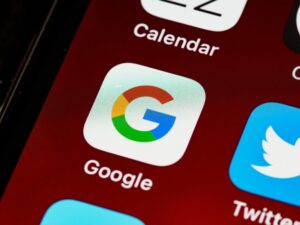On November 15, 2023, the Federal Communications Commission (“FCC”) voted in favor of undertaking a formal inquiry to evaluate the impact that artificial intelligence (“AI”) technology will have on Telephone Consumer Protection Act (“TCPA”) litigation and illegal robocalls. As readers of this blog know, the word “robocall” does not have a universally accepted definition, with some considering it to mean prerecorded, autodialed calls, while others deeming it to encompass all unsolicited telemarketing calls. This Notice of Inquiry (“NOI”) comes on the heels of the Subcommittee on Communications, Media and Broadband’s October hearing, where the Subcommittee discussed the telemarketing industry’s increased use of AI and resultant TCPA litigation from robocalling. The NOI also follows the FCC’s announcement that it would continue to aggressively police the telemarketing industry earlier this year.
The focus of the FCC’s inquiry will be on both the positive and negative impact that AI will have on unwanted telemarketing calls. From a positive perspective, AI will likely help with blocking unwanted calls and text messages. From a negative perspective, the FCC explained, AI can allow telemarketers “to more easily defraud consumers.”
Accompanying the NOI, FCC Commissioner, Geoffrey Starks, issued a statement stressing that all three branches of the government are committed to studying the impact of AI on TCPA litigation and robocalls and how resulting findings will be taken seriously. For example, one area of particular interest is voice cloning and the risk of fraud (scamming consumers in order to obtain personal information and/or money). Currently, voice cloning is already regulated under the TCPA’s prohibition on the delivery of artificial and prerecorded voice calls without prior consumer consent. Part of the NOI will focus on how the FCC can work with AI developers to ensure TCPA compliance.
Similarly, on November 16, 2023, the Federal Trade Commission (“FTC”) announced an exploratory “Voice Cloning Challenge” to help promote ideas to protect consumers from the misuse of voice cloning technologies.
The FCC, along with other governmental agencies, is using its regulatory authority to attempt to prevent emerging AI use from creating more TCPA litigation. It remains unclear as to whether and how the use of AI will result in amendments to the TCPA or the passage of new state telemarketing legislation. However, what is clear is that as the use of AI continues to increase, telemarketers must ensure that they have a complete and thorough understanding of what is prohibited under the TCPA.
If you require assistance with preventing your business from becoming the subject of an FCC investigation or TCPA lawsuit, please email us at info@kleinmoynihan.com or call us at (212) 246-0900.
The material contained herein is provided for information purposes only and is not legal advice, nor is it a substitute for obtaining legal advice from an attorney. Each situation is unique, and you should not act or rely on any information contained herein without seeking the advice of an experienced attorney.
Attorney advertising
Photo by Jigar Panchal on Unsplash
Related Blog Posts:
AI Telemarketing Robot Fights Telemarketing Calls – Klein Moynihan Turco
Senators Request Updated Guidance from FCC on TCPA Consent – Klein Moynihan Turco
FCC ISSUES HISTORIC ROBOCALLING PENALTY – KMT (kleinmoynihan.com)




